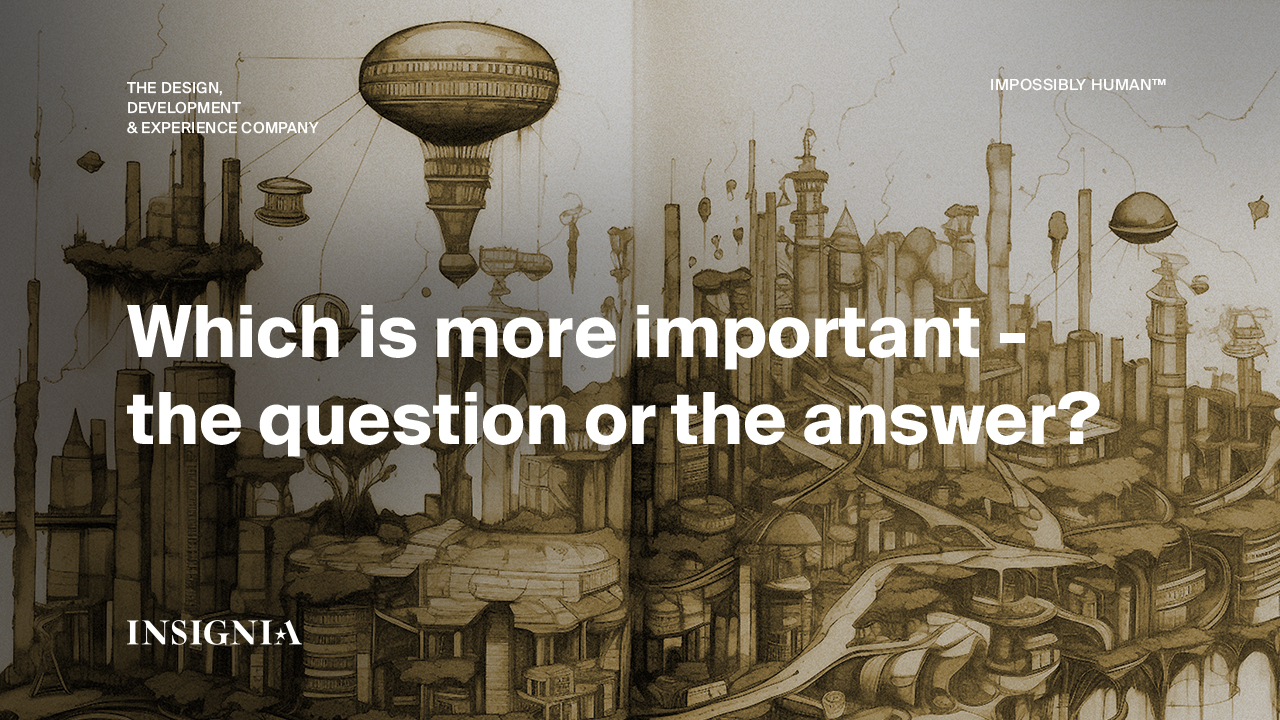It starts at school.
With the right answers, you succeed. You go to a good university and have a stellar career.
Ask questions and you’re being difficult. You probably end up doing art or philosophy or a bit of both, like Leonardo da Vinci.
If human ingenuity is going to save the planet and its people, what if we are wrong about always giving right answers? Indeed, what if the biggest problem is having too many dogmatists all convinced only their solution is correct.
Two hundred years ago in his masterpiece The World as Will and Representation
Arthur Schopenhauer observed: “Talent hits a target no one else can hit. Genius hits a target no one else can see.”
Surely, this is the very essence of human ingenuity? Seeing the world a different way because you ask the difficult questions. For an innovator like Leonardo, it was his modus operandi. Imagine the average week in Studio da Vinci.
“How can we make better forecasts about weather?” Leonardo invents the anemometer.
“Why can’t we fly like birds?” Leonardo conceptualizes the flying machine and helicopter.
“Why is that clock always wrong?” Leonardo replaces weights with springs.
“Why can’t we repair ships without taking them out of the water?” Leonardo comes up with the diving suit.
Asking impossible questions is what drives us at Insignia. We believe progress is not possible without them. Nowhere is that more critical than in the world of design, development and experience.
Right now, here are some the big questions we are addressing.
- How can urban design foster sustainable and resilient cities in the face of climate change?
- In what ways can nations build inclusive economies that promote social well-being for all citizens?
- How can the arts contribute to fostering cross-cultural understanding and tolerance in a world marked by cultural diversity and potential conflicts?
All of these questions require challenging what is humanly possible, often responding with what is impossibly human. We call it Humanistics. Over the coming weeks we will be offering some of our insights into some of these challenges. Just as important, we will be framing more of the questions we should all be asking.
